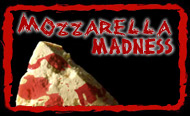
The Exorcist (1973)
Studio: Warner Brothers
Release date: October 8th, 2013
Reviewed by: Brett Gallman
The movie:
Religious faith is an interesting paradox, as it functions to bring some sense of certainty and some order to chaos despite the very uncertainty it rests upon. Given the film’s reputation, it’s easy to understand why The Exorcist would unsettle any generation of movie-goer, as it represents an unholy assault on that faith in the form of the ultimate discordance: the corruption of innocence. Nearly 40 years after its release, William Friedkin’s film is still the standard bearer in that respect—few films (if any) have been able to recapture the guttural dissonance at its center.
For lack of a more eloquent turn of phrase, it’s obvious that something just ain’t right here, and it shakes our very core. For all its infamous, shocking highlights, it’s this bizarre, brooding schism that truly defines The Exorcist and has cemented its reputation as one of the scariest films of all time, which is no small feat for any work of art four decades after its release.
Yet, for all of this, Roger Ebert sensed “some small measure of dogged hope” within the film back in 1974, a declaration that seems absolutely alien to any discussion of the film these days. But it just so happens (hand to god!) that this is exactly what struck me upon recently revisiting the film: while the film features an ample amount of despair, it also works as a confirmation of faith. After all, if there’s a devil, there must be a God as well, a notion that feels quite irrefutable by the film’s climax, blood-stained and tragic though it may be. That the film is still considered to be so terrifying despite this must be a testament to its power.
By no means does The Exorcist feature a happy ending; it is perhaps bittersweet in its reassurance that good can scrappily triumph over evil (albeit only at a great cost), and the sinister nature of the evil so incredibly oppressive that it almost feels like a pyrrhic victory. The gates of hell are sealed, but only after they’ve unloosed pure terror on a world that didn’t need to confront any more demons. A direct reflection of the miasma from which it spawned, The Exorcist presents contemporary anxieties (a deteriorating nuclear family, ineffectual science, boozing, faithless priests) that reinforce the notion that things fall part. Maybe the center eventually holds, but not without some fraying; however, nobody in 1974 wanted to hear about a dim light at the end of the tunnel.
And nobody wants to hear that now, either, which explains the film’s endurance. The notion that things will only get worse before they get better stretches horrifyingly across the decades. If it were possible to reduce The Exorcist to such terms, I’d argue that it’s scary for that very reason: its evil is not only real but also exists as an inexplicable burst that attacks on a personal level. Where The Omen would later present an Antichrist with a glint of world domination in his eye, The Exorcist merely captures a battle for the soul. It’s fought on multiple fronts, with Regan McNeil’s body serving as the most obvious theater (appropriately enough, it serves up all of the noteworthy theatrics that have made the film so infamous).
If the film were confined there and merely charged a bubbly young girl’s unfathomable descent into vulgarity, it’d be a terrifying display of corrupted innocence. However, it stretches well beyond that by presenting a tableau of characters brimming with dignity and goodness: the understandably high-strung mother, the kindly detective, the diligent family friends, the titular exorcist who dutifully reports to the battlefield like an aged, grizzled warrior (Friedkin’s genius casting of Max von Sydow lends an immediate weight—nobody had endured more cinematic bouts with faith and doubt at this point).
Of course, the real anchor is Father Damian Karras, the troubled priest who doubles as something of an audience surrogate. When confronted with this evil, his first instinct is to doubt and retreat to logic and science; by the end of the film, he has become a martyr for a faith he was close to disavowing. I don’t know if a 40 year old performance can still be considered revelatory, but Jason Miller’s turn is the stunningly subtle lynchpin of The Exorcist. Without his humane, dignified, everyman struggle at its center, the film would lose its most luminous soul.
It’s that contrast that ultimately makes The Exorcist work: in its battle of good vs. evil, each side pulls its best representatives off the bench. That the film doesn’t descend into trite cliché or tired sentiment is almost incredible—this really is Good vs. Evil presented with little ambiguity or nuance. Maybe that’s why the film remains so powerful: we so desperately want these characters to emerge from the abyss. Despite (or because of, now that I think of it) their flaws, they capture something of the human spirit that remains indomitable, even after it's gone through hell.
The disc:
On the eve of its 40th Anniversary later this year (the film was released during Christmas 1973, a combination of sacrilege and brilliance on the studio’s part), Warner Brothers has prepped a new Blu-ray release that acts as an appendage to the 2010 release. In fact, this latest release carries over the exact same disc from that offering, so fans still have a choice between the original theatrical version and Friedkin’s director’s cut (WB has mercifully retired the “Version You’ve Never Seen” nomenclature, presumably because it mooted itself as soon as everyone laid eyes on 13 years ago).
Both versions have been immaculately restored; WB has long been a stalwart on the Blu-ray format, and The Exorcist still stands as one of their best efforts. The film looks incredibly natural, as the studio resisted any temptation to smooth out the edges with any obvious post-processing, while the DTS-MA track takes the original track and spreads it over multiple channels without resorting to obvious gimmickry. The low-end especially adds menace to the more overtly horrifying sequences, and the film’s sparse but memorable soundtrack has never sounded better.
Since this release carries over the same discs from the Digibook edition, you’ll still find all of the same supplements: a trio of retrospectives, trailers, radio spots, TV spots, storyboards, the original ending, an introduction from Friedkin, interviews with the director and novelist William Peter Blatty, and Fear of God, the feature-length documentary chronicling the film. Both cuts feature commentary tracks from Friedken, while Blatty provides an additional track for the theatrical version.
This edition also adds an entirely new bonus Blu-ray disc, but it only features a pair of new features that don’t even add up to an hour’s worth of material. “Beyond Comprehension” finds Blatty exploring the genesis of his novel and its subsequent adaptation by visiting various locations that were integral in its development, and “Talk of the Devil” sheds some light on Dr. Eugene Gallagher, whose 1949 possession case inspired The Exorcist. The 20 minute feature presents a vintage interview with Gallagher and also presents some of the correspondence between the priest and Blatty.
Friedkin isn’t left out of the proceedings, though; while he’s not prominently featured on the new bonus disc, a hardcover excerpt from his memoir, The Friedkin Connection, is included in the gorgeous packaging. As you might expect, the excerpt keys in on The Exorcist era, as the director muses on everything from the film’s development to his decision to revisit and update it nearly thirty years later.
To its credit, this 40th Anniversary Edition is a comprehensive effort that includes just about everything from past releases—it just so happens that its new material is nominal at best. For anyone who never got around to picking up the 2010 release, this one’s a no-brainer: The Exorcist is one of the finest films ever made, and this is its absolute best home video treatment to date. comments powered by Disqus Ratings:








